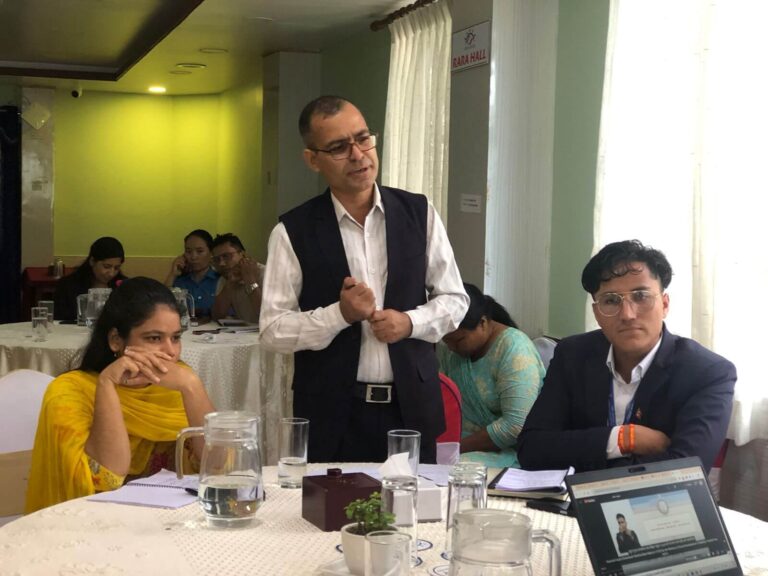Orientation on Disability-Inclusive Justice System in Surkhet

Access Planet Organization successfully conducted a one-day orientation on the disability-inclusive justice system in Surkhet on 1st July 2025, with the support of Women's Fund Asia/Leading From The South. A total of 24 persons representing Nepal Police, District Courts, the Supreme Court, and the Nepal Bar Association participated in the program. Advocate Mukunda Hari Dahal and Laxmi Nepal, the executive director of Access Planet, had done the facilitation for this one-day orientation program. The orientation brought together 24 participants representing key justice sector institutions, including the Nepal Police, District Courts, Supreme Court, and the Nepal Bar Association. The session was facilitated by Advocate Mukunda Hari Dahal and Ms. Laxmi Nepal, the Executive Director of Access Planet Organization. The program aimed to enhance understanding and promote inclusive practices within the justice system to ensure better access to justice for persons with disabilities.
Objectives of the orientation
- To raise awareness about the diverse types of disabilities and the systemic barriers persons with disabilities face in order to promote inclusive justice practices.
- Build the capacity of police, judiciary, and legal personnel to adopt disability-inclusive and rights-based approaches.
- Make justice infrastructure and procedures physically, procedurally, and communicatively accessible to all.
The first session of the orientation, led by Ms. Laxmi Nepal, introduced participants to the concepts, types, and models of disability through interactive discussions and a case study that highlighted the real-life challenges faced by persons with disabilities. The second session focused on international and national legal frameworks, emphasizing the importance of inclusive justice systems and identifying major legal and institutional barriers, such as inaccessible infrastructure and discriminatory practices. Key recommendations, including the need for reasonable accommodation, universal design, and stronger institutional accountability, were discussed. The final session explored procedural aspects of the justice system and their impact on persons with disabilities, using a case study to highlight gaps and systemic failures. The participants, including representatives from courts, police, and the Nepal Bar Association, acknowledged the lack of legal provisions, committed to future actions, and recognized the importance of training justice actors and incorporating assistive technologies. The initiative by Access Planet was widely appreciated, especially in light of the government’s limited engagement in such critical capacity-building efforts.
Outputs
Image Gallery


